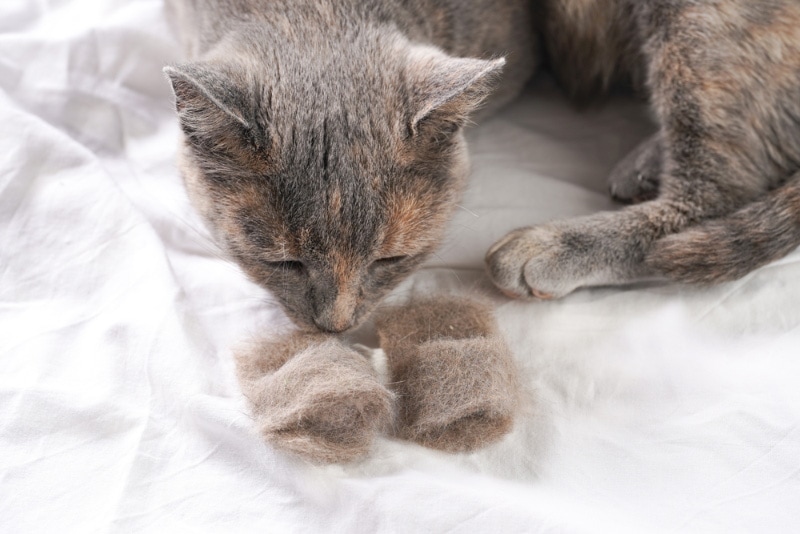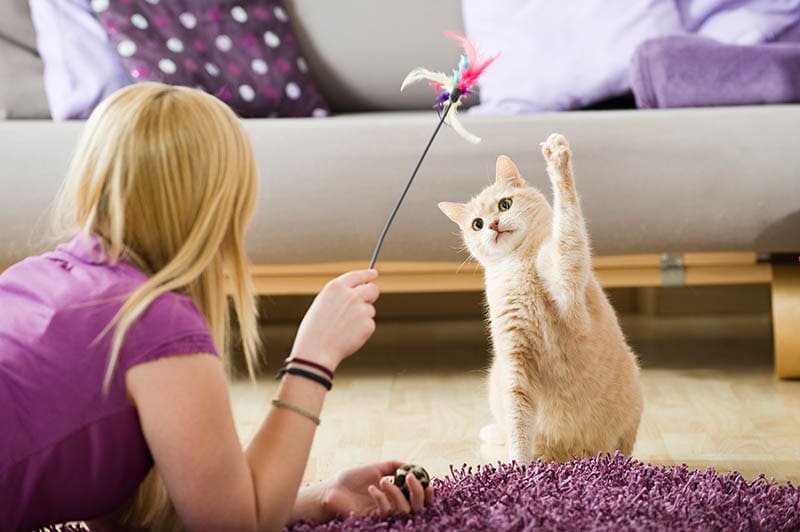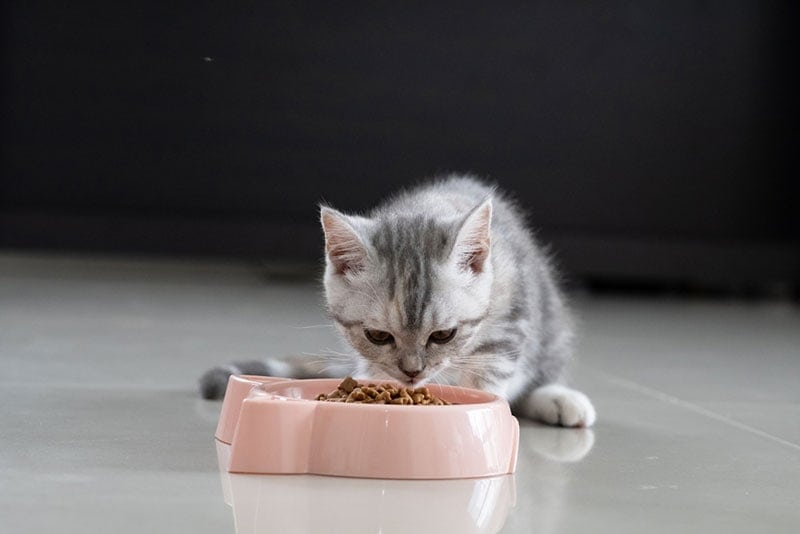Does Stress Give Cats Diarrhea? Vet-Approved Explanation
By Brooke Bundy
Updated on
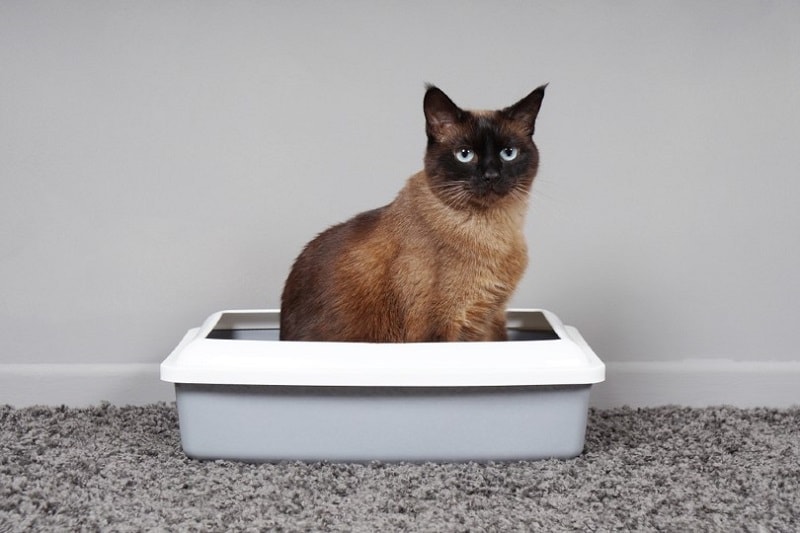
Have you ever noticed how you suddenly need to use the bathroom before a job interview or a first date? Stress and anxiety can turn your cat’s bowels loose too. Cats generally dislike change, especially if it forces them to compete for resources or your attention, such as what may happen when you move or adopt a new pet. However, anxiety may not be the only reason your feline isn’t feeling their finest. Unfortunately, there’s a darker side to sudden diarrhea, as it can be a sign of serious illness. Here’s what you need to know to figure out what’s stressing or ailing your cat, and what you can do about it.
The 5 Vet-Approved Reasons Why Your Cat Is Stressed
Just like in humans, the gut-brain connection is strong in felines. Stress can affect virtually every part of their body, so it’s vital for their health for them to rest in a relaxing environment where they feel loved and safe.
If something is giving your cat grief, they might act out in unusual ways, such as defecating on the floor or destroying objects. A calm cat with a gentle demeanor may turn into a hissing, fearful creature who’s yowling in the night and shredding the carpet by day. Stress and anxiety can be devastating to your cat’s GI health and general wellbeing, so it’s critical to get to the bottom of the problem as soon as possible.
Check to see if your cat may be suffering as a result of these top five common reasons for anxiety:
1. Changes in Their Environment
Think back to right before your cat developed diarrhea. What happened that day? Cats generally dislike change. Anything from a major event such as a move or a new family member to something as petty as relocating their food bowl could trigger anxiety and cause diarrhea. In situations like these, it’s crucial to set aside some snuggle time and reassure your cat of a constant factor in their ever-changing life—your love.
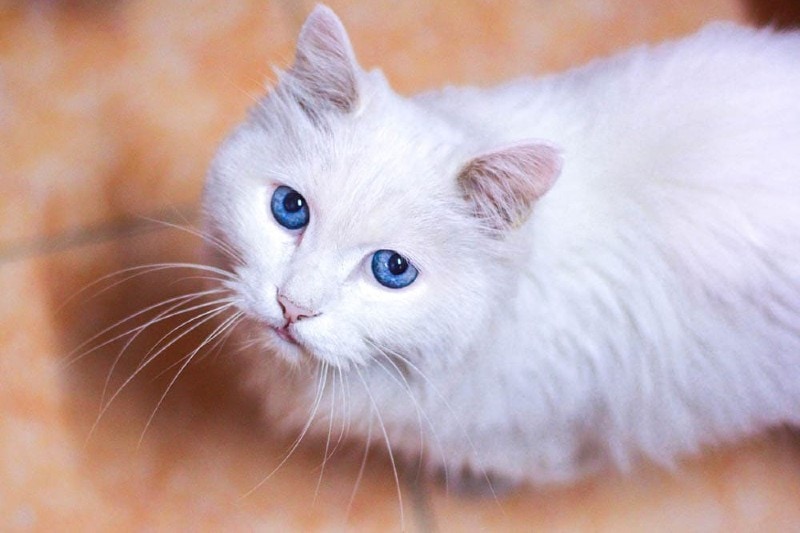
2. Personal History
Cats have scars from their past just like we do. Even if you thought it was an ordinary week, something could have happened that triggered a bad memory. For example, maybe you brought down a cardboard box from the attic, which seems like a normal task to you, but reminds your cat of when their previous owner moved and left them behind.
3. Competing for Resources or Your Attention
Adopting a new kitty or bringing home a baby may offend your cat and make them feel less important. If you have multiple pets, make sure your cat has access to their own private nook where they can’t be bothered. Give adequate food and litter for all of your pets so they’re not feeling like they have to struggle to survive. Cats are strongly territorial creatures who prefer one litter box per cat plus one, so they have options.
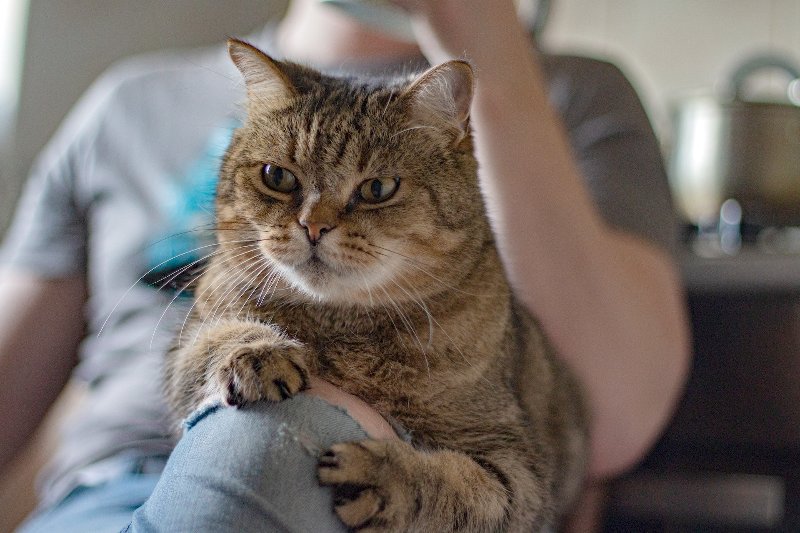
4. Injury or Illness
Physical pain can create severe anxiety in your cat, especially if it isn’t being treated. Inspect your cat for any signs of injury and monitor their behavior for any other signs of illness to see if you need to take a trip to the veterinarian.
5. Problems in the Litter Box
Cats spend half their waking hours bathing themselves. They’ll readily turn their noses up at a dirty litter box and might not even dain to use it. Scooping the poop should be included as part of your daily routine in order to prevent the spread of diseases such as toxoplasmosis and give your cat somewhere to go.
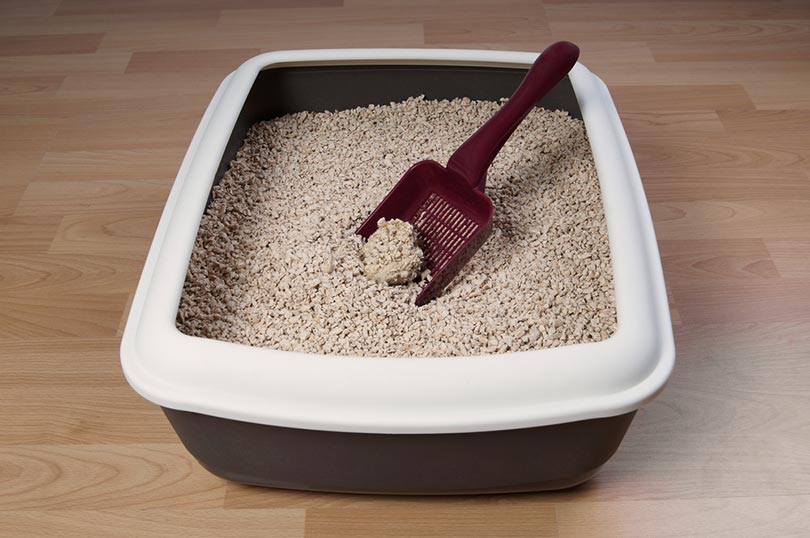
Top 6 Other Common Causes of Diarrhea in Cats
Stomach upset can occasionally occur in cats due to stress or without any cause for major concern. Sometimes they might only have a mild problem like a hairball, or their food didn’t sit with them well.
But oftentimes diarrhea is a sign of an underlying condition, such as food allergies, parasites, or disease. While diarrhea usually resolves on its own within a couple of days, it can dehydrate your cat over longer periods of time and can potentially be life-threatening. Here are some possible reasons your cat might be suffering from diarrhea that aren’t related to stress.
1. Parasites
Roundworms, hookworms, and other intestinal parasites can create havoc in your cat’s GI tract. If you suspect worms, inspect their poop for tiny white specks that resemble rice. This is a sign of worms. If your cat isn’t on flea prevention, they have a greater chance of contracting tapeworms since these parasites require an intermediate host, such as a bird or flea. Talk to your vet about deworming your cat if you think that may be the reason for their runny stool.
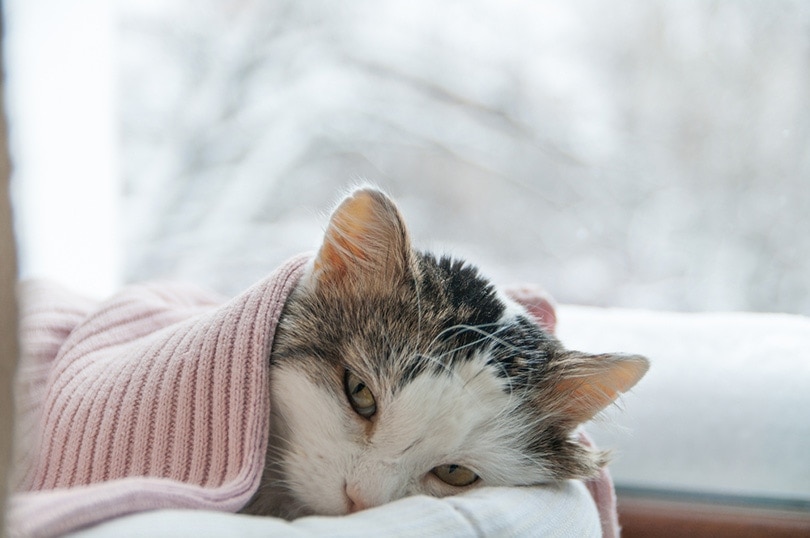
2. Bacteria
Your cat’s intestines harbor beneficial and harmful bacteria, and their diet helps determine who wins the cultural wars. Diarrhea can be a sign of a bacterial infection that will need antibiotics for treatment. Talk to your vet about starting your cat on probiotics to help them fight the current issue and prevent future infections.
3. Viruses
Stomach upset can be a sign of viral illness. While many may not be serious, others can inflict dehydration and nutrient loss if the illness if prolonged, so it’s best to seek veterinary advice if you have any doubts. Some viruses such as feline coronavirus may start by causing diarrhea, but mutate into something far more sinister, especially in cats under 2 years old. However, this is usually accompanied by many various signs other than diarrhea.
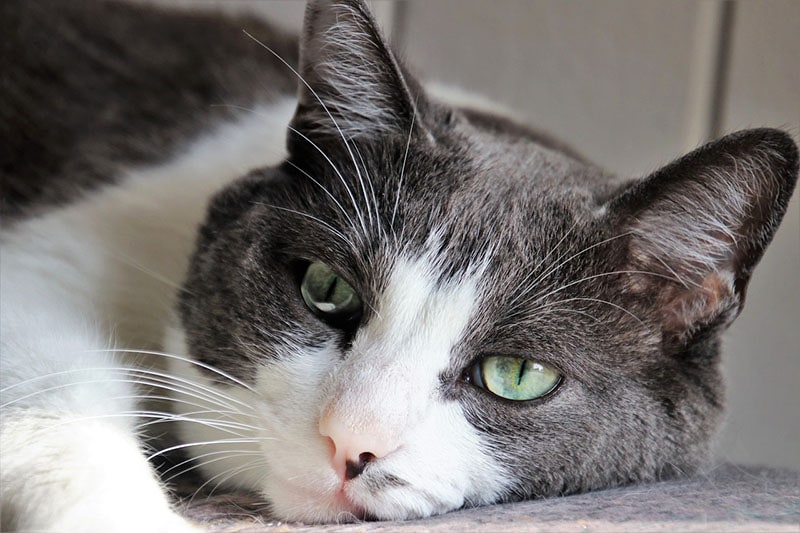
4. Food Allergies
Your cat might’ve been exposed to something they’re allergic to. Like humans, cats can also develop allergies towards foods they’ve eaten their entire lives, so it’s possible that they suddenly can’t tolerate their longtime favorite formula anymore.
5. Eating Inappropriate Foods or Objects
Common pantry items such as raisins, chocolate, and alcohol are toxic to cats. Additionally, some household items are also very dangerous to ingest, such as cleaners and specific houseplants.
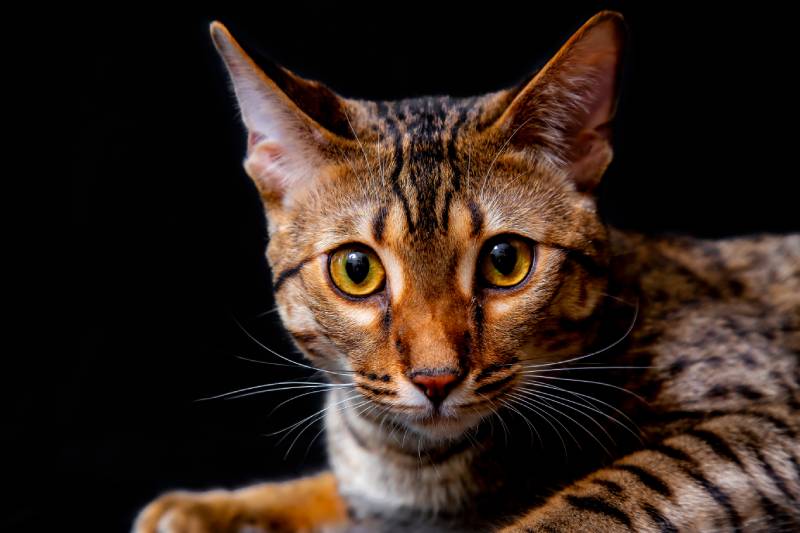
6. Switching Foods
Try to switch your cat’s food gradually to prevent upset. If their stomach upset is exceedingly violent or lasts for longer than a couple days with only eating a small amount of the new food, talk to your vet about finding an alternative formula or go back to the old food if it was working.
Final Thoughts
If you notice your cat having diarrhea, make sure you take note of any other signs of illness. Visit your vet if the problem doesn’t resolve within two days, or if their stomach upset is accompanied by fever, intense pain, or a refusal to eat or drink. While diarrhea happens, it can be serious depending on the cause and duration. You’ll want to keep a careful eye on your cat while it lasts to make sure they don’t become dehydrated or show other signs that something is terribly wrong.
Featured Image Credit: Axel Bueckert, Shutterstock



